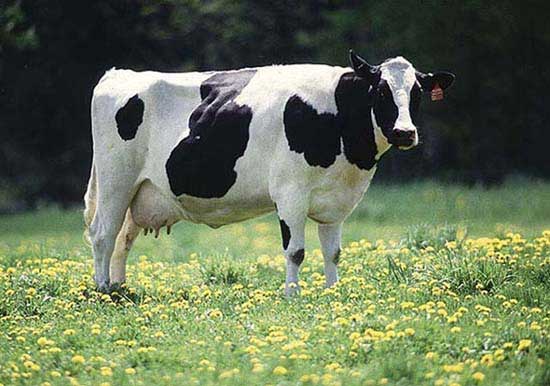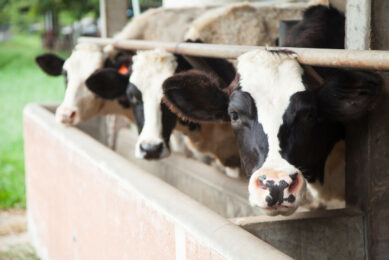New feed additive to help cows with heat stress

Animal nutrition company Trouw Nutrition International is launching MaxCare CelSius, a new mineral supplement to relieve the effects of heat stress in dairy cows.
Added to feed during the summer months, MaxCare CelSius supports rumen health and maintains rumen fermentation. It also helps the animal to cope with stress induced by respiratory alkalosis (increased blood pH levels) as a result of panting. Maxcare CelSius aims to reduce the onset of heat stress symptoms by helping the cow to cool down through respiration. The economic impact of heat stress can be considerable: in the US, for example, the cost is estimated to be $800 million annually1.
Heat stress is caused by interlinking factors during hot weather. When cows overheat, they respond by sweating and reducing their dry matter intake (DMI), which leads to the loss of specific minerals and the reduction of saliva to the rumen. This, in turn, causes the rumen pH to drop, affecting the delicate balance of the rumen micro flora, a fundamental element of the ruminant digestive system. Heat stress can cause serious health problems such as mastitis, laminitis and acidosis and can even result in death.
Peter van Dooren, Global Technical Manager at Trouw Nutrition International, comments: “Heat stress is a common and serious problem for dairy farmers, but there are precautions that can be taken to minimise the risks. Adequate provisions of water and shade are important, and farmers can also adapt ration formulations to account for metabolic changes during heat stress. Adding MaxCare CelSius is a good idea as it is specifically developed to ensure the electrolyte balance and helps the rumen to remain healthy. The product counteracts the effects of heat, significantly reducing the risk of cows suffering from heat stress.
To be fully effective,administration of MaxCare CelSius should start before the period of heat stress,and continue for four weeks afterwards. MaxCare CelSius can also be used in combination with a number of complementary products: Selko TMR to improve DMI intake and GlucoLac 40 or GlucoLac 40 Plus to support the intake of feed and glucogenic energy sources.
[1] St. Pierre, N.R., B. Cobanov, and G. Schnitkey. 2003. Economic losses from heat stress by US livestock industries. J. Dairy Sci. 86:E52-E77











